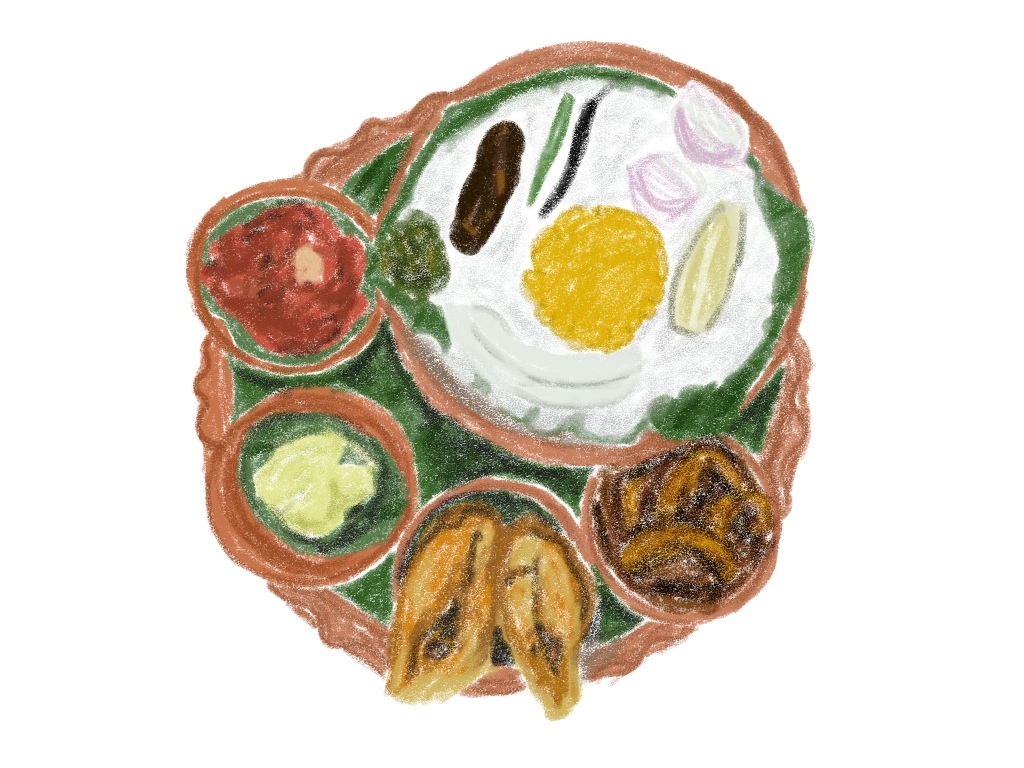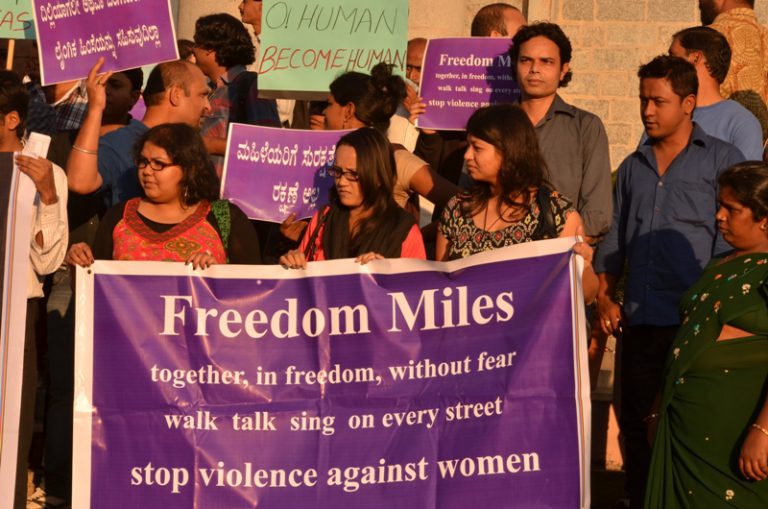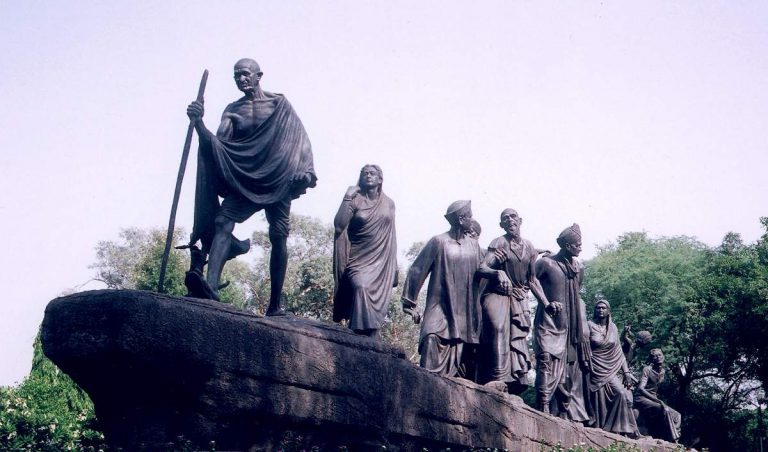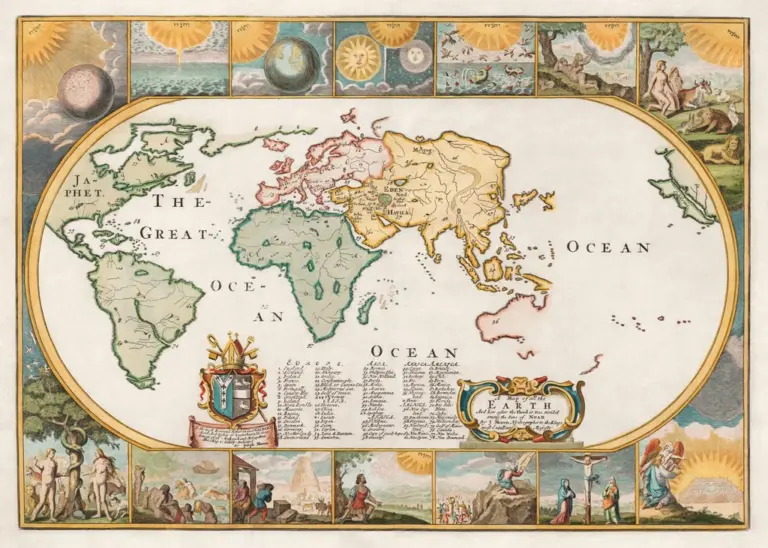Food: Its role in evolution of society and politics

Food, is a quintessential ingredient for human survival, a necessity to quench his hunger. Living beings of all orders- be it insects, rodents or mammals spend a substantial amount of their time in search of food. The prehistoric, hunter-gatherer was more aware of perils associated with this activity. It has been roughly estimated that our ancestors spent a large part of their life in search of resources. It is only with the advent of agriculture, that man finally decided to settle, this furthered the process of domestication as newer species of plants, animals evolved, substantially altering his diet and his social life. Cultivation of crops leads to settling down of man, which harbingered the growth of the village. The subsequent technological developments created the growth of specialized occupations, towns, and cities. Thus, the concept of society gradually evolved, leading to the formation of states. Food thus played a pivotal role in human evolution. Over time, food has evolved and has assumed multiple identities.
Food habits as a reflection of diversity
Our cuisine is an integral part of our identity representing our traditions and culture. It is an active participant in the historical process, a witness to changing socio-political milieu. In a vast country like India, food habits represent regional identity. The varied cuisine in India is a result of an enormous geographical extent, coupled with climatic variations. Each state, I have managed to travel so far, has exposed me to newer delicacies. The Chhena Podaa of Odisha, Gujiya of U.P, Litti Choka on a winter morning in Patna, Poha on the road to Ujjain, the filling Parathas of Amritsar and Puttu for breakfast in Kerala refresh the old memories.
Food has helped me connect with more than two places. Often when I come home, I miss the hot and spicy Chole Bhature, Parathas, Naan, Shawarma, and Kulcha that I often relish in Delhi. A freshly baked Sheermal on a wonderful rainy afternoon on the busy streets of Chandni Chowk made me fall in love with Delhi. While, when in the hostel, I often do miss the Pav bhaji, Masala pav, and a vast assortment of Vada made back in my hometown. Thus, every state in India has the potential to gratify our taste buds.
Food habits and discord
But everything is not always amicable regarding food. There have often been hassle between different states deciding over the originality of a particular food item. The long-standing debate on the origin of “Rasgulla” between Bengal and Odhisa need not be repeated here. Arjun Appadurai, in his book “How to Make a National Cuisine: Cookbooks in Contemporary India” mentions how a form of cuisine has always acquired precedence over the other like the Bengali over Oriya, Gujarati over Rajasthani, Punjabi over Kashmiri , Tamil over Telgu. There have been long-standing issues and discontentment between states over how a form or type of cuisine completely overshadows the other. There are some dishes which have completely taken over the market while, others are still waiting for some recognition. Consider, for example, the Udupi restaurant, which has today become a synonym with South Indian food.
The recipe for cooking the vegetables in restaurants is almost standardized, giving more preference to Punjabi food, rejecting some popular regional methods of cooking. And, the Paneer today has assumed a role of “national sabji”, entering everywhere from our tiny kitchens to our weddings. Along with regional identity, food also has come to assume a center stage in dictating our social norms. Most of our caste identity are centred around strict norms pertaining to food habits. Ambedkar, in his “Writings and Speeches of Ambedkar” published in 1948 has observed how Food act’s as a catalyst for divide between the Hindus and the other communities. The distinction is done in two forms, firstly based on the habit of consuming meat and secondly based on beef consumption.
Further, in it there has been distinction among those who eat the flesh of a fresh cow and the ones who ate the meat of a dead one. In his opinion, Dalits are discriminated against mainly based upon their dietary habits, which made them distinct from the rest of the masses. This according to him polluted the Dalits and made them untouchables. Often, the Hindus of high caste refuse the food cooked by lower caste or untouchables to maintain the ritual purity of food. There are variations in preparation and treatment which are attributed to a particular caste.
Most of the communities and localities are centered around these norms. Mentioning beef in my household can be scandalous, while the fact that some of us do not even eat mushrooms and eggs can almost be incomprehensible for a diehard meat-eater. In our bid to adopt newer recipes, people have often replaced ingredients to suit their taste buds. While most of us have happily included Chilli flakes, Pasta’s, Thai curries in our diet, the same are yet to use eggs for baking their beloved cake.
Politics of food
Food today has assumed a political undertone. There is a growing disdain towards a particular food item, which was an object of relish for our ancestors. Targeting a specific community based on food habits is sadly a reality today. The rising intolerance in society towards someone else’s food choice and the dietary pattern is a saddening event, which has for ages seen diversity in food habits. It is essential to understand that it is only in India that the activity of meat-eating is not called by its name and rather rendered as something which is not vegetarian—thereby indicating how the notion of vegetarianism has been gaining currency in India. The rising tide of nationalism has included food within its ambit were under the current regime; there has been increasing vigilantism against consuming beef. There have been in recent years cases pertaining to atrocities conducted on beef eater and traders. Strict laws have been put in place against killing of cow, bullocks and bulls. In spite of this, beef is a significant ingredient that forms a part of the famous cuisine in Kerala and Meghalaya.
The political overtone goes beyond disdain for a particular food but also is expressed through the denial of having to eat food cooked by someone else’s hand. The recent news of quarantined corona patients in Uttar Pradesh who denied consuming food cooked at the hands of Dalits. This incident brings forth in front of us a very cruel picture of our sick social order. Here the activity of quenching hunger goes beyond the basal needs of a man and is closely associated with his caste, his status in the society. Food, when once attached to our social status, creates fissures in our community and brings forth the divisions in front of us. As a person, born and brought up in a secured, upper caste and urban setting the magnitude of discrimination based on food habits is extremely difficult to discern.
Further, the religious denomination have always been peculiar about food habits. The concept of Prasadam is one more domain in which food not only plays with our memories, taste but at the time also show it unifying as well as discriminating reality. The first Khichdi I had at Iskcon, the colossal round laddu at Tirupati, the assortment of dishes cooked for Gauri Pujan during Ganapati all reconnect me with my roots. The Mahaprasad Jagannatha Puri is a blend of tradition and food. The prasad is cooked in earthen pots on fire lit by wood. It is prepared daily on the temple premise by cooks.
Similarly, at Amritsar, we see that people of a community and faith amicably come together to provide food as a service to all needy and hungry. It is examples like these that restore our faith in humanity, but on the other hand, we have instances where people from marginalized sections are denied food during village feast based on their caste. In such situation food is used a mere tool to divide people on caste and religious line. The often-rigid rules crafted around cooking festive food are forbearers of our age-old shackles, which we need to serve promptly. We need to let go of these age-old traditions, derogatory customs prevalent in our society. Food habits, thus, not only shape our communities but, over time, have also shaped our notions of others.
Nostalgia and food
If food connects us with our society, it also takes us back home. Every summer makes me nostalgic suddenly a host of memories remind me of my grandmother’s home. The warmth of the grandparent’s love, the naughtiness with my cousins, endless games with neighbours and long sleepless nights spent in gossips and discussion. The thing which I remember the most is my grandmother’s old refrigerator, stuffed with assortments of food, snacks, and fruits. The ripe smell of mangoes, the tangy taste of “Aam Pana,” and the sweet taste of watermelon lingers on my mouth. Indeed, taste can be nostalgic. We use to have a quintessential routine of having fresh mangoes each afternoon. Many summers have passed, I have somehow outgrown my love for mangoes, they don’t taste the way they used to when I was a kid. But, even a sight of these fruits transports me back to those good old days.
All of us have some memories of food that can take us back in time. The memories of food are vivid and they are more evocative than most other form of memories. The sense of nostalgia they imbibe is more profound, as we are not only reminded of food but are readily transported back into the contemporary period. Suddenly, there is a flux of visual data flashing in front of our eyes, a room full of people their happy and giggling faces, small tiny kids running around the house in pretty frock, the afternoon naps and the evening games bring a satiating smile on my face. John. S. Allen in his book “The Omnivorous Mind” has suggested that food memories are more sensory than rest of the memories as it involves functioning of all the five sense organs.
The powerful stimuli of these sensory organs have a more profound effect on our memories. The research has further suggested that it is the context that lends a more significant effect on these memories. It is the company, the situation and the emotions evolved which play an important role in formation of these memories. In my case it is the space which I shared along with the people, the warmth which I experienced along with them that make the memory more reinforcing. It’s interesting to note how food whose primordial function is to quench hunger in this context occupies an emotive role helping us connect with our families and probing our emotions.
Beyond hunger
Food thus plays an important role in our society. It connects us with our family, society, state. It outgrows its basic function of satiating hunger instead has been a witness to our evolution. It is a window to our childhood nostalgia; it is our partner in the adventurous solo trips, it’s our state identity and is an active part of our politics. We attach not only our emotions but also our identity and societal position with the food we consume.
Featured Image Credits: Public Domain Pictures









Article is very informative
Very enlightening.
So good to have come across such discourse on food and culture in our society.